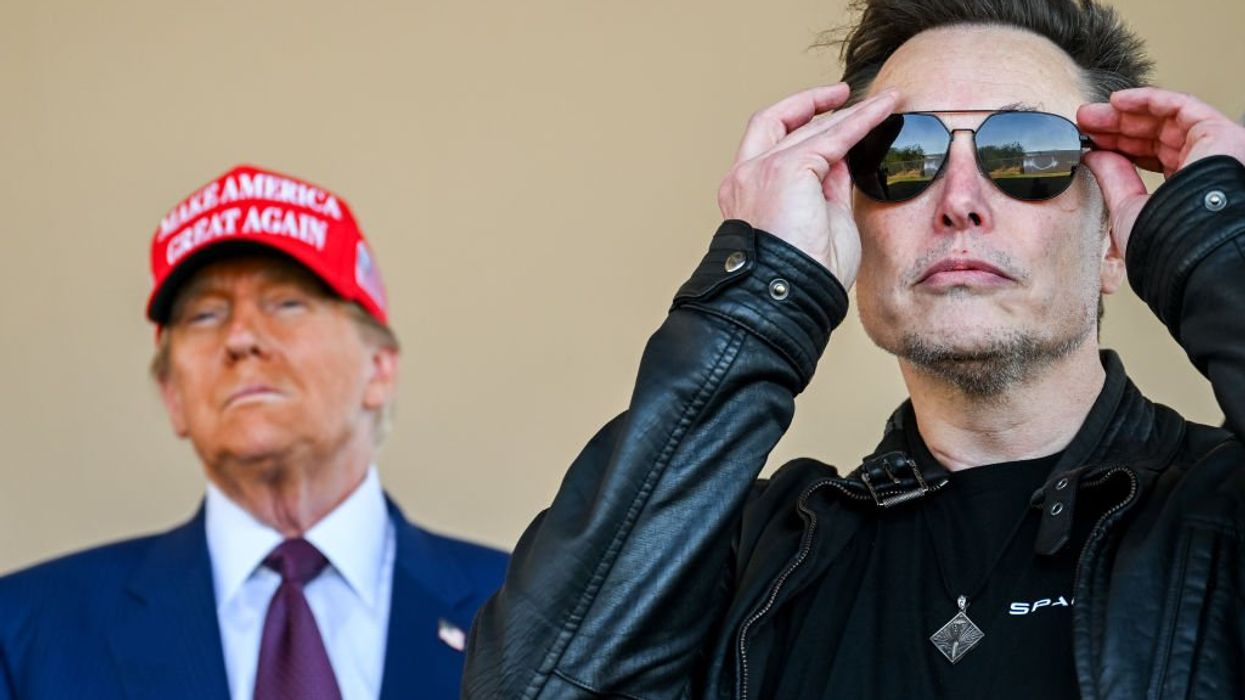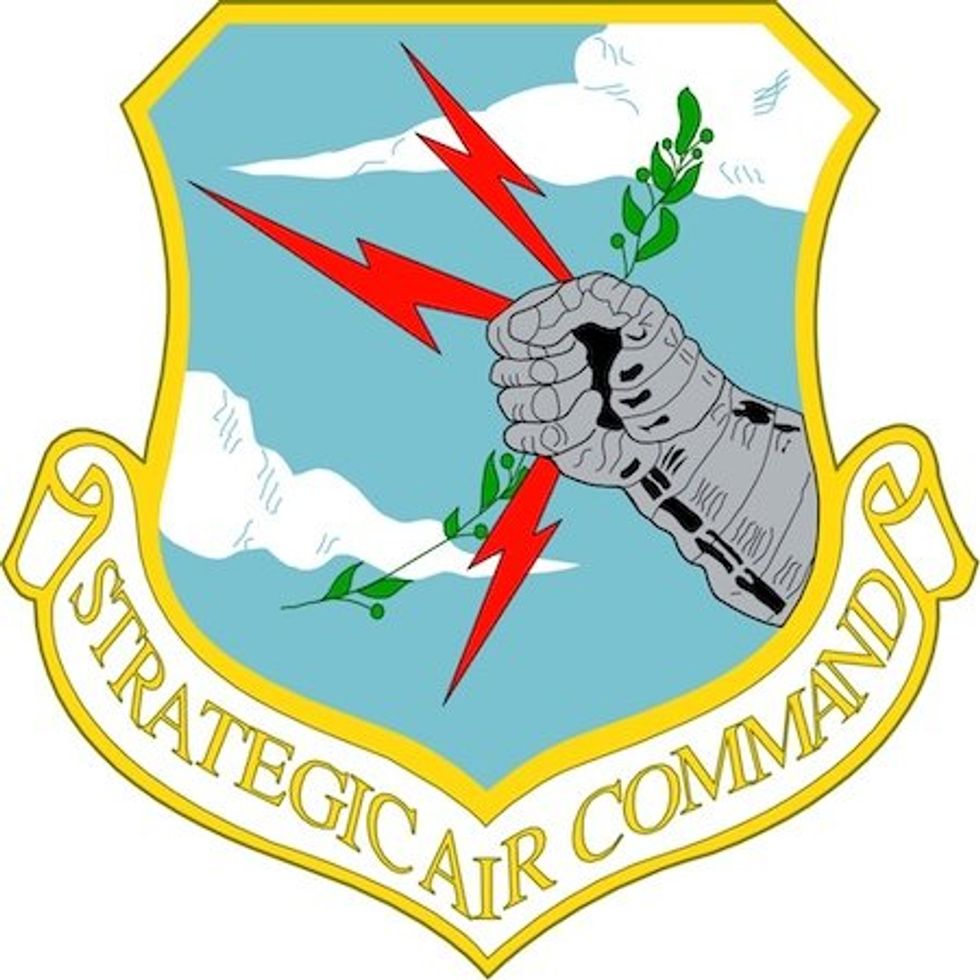How Elon and Vivek can deliver efficiency and counter China

The United States faces a dire threat from China’s expanding military power, fueled by its rapid economic growth. To counter this growing danger, the United States must significantly boost its economic growth to allocate a larger share of its GDP toward national defense.
Elon and Vivek take note: Making the U.S. government more efficient should not only fulfill a key Trump-era campaign promise but also serve as a cornerstone of a robust national security strategy to counter Xi Jinping’s expansionist ambitions.
These proposals would simplify wealth creation, reduce government overreach, and help preserve the classic American way of life.
Reorganizing Washington requires looking to the past for lessons that can shape a stronger future.
When George Washington led the country, the federal government consisted of four Cabinet departments: War, Treasury, State, and the Attorney General’s office.
Congress later added the Department of the Interior, a name that could easily have been “the Department of Everything Else,” as it oversaw a wide range of responsibilities affecting the young nation’s economy. In 1862, Abraham Lincoln established the Department of Agriculture to reflect the agrarian economy’s role as the primary generator of wealth at the time.
Subsequent departments emerged as responses to contemporary political challenges. The Labor Department split from Commerce as a nod to the growing labor movement. President Lyndon Johnson championed the creation of the Department of Transportation. Jimmy Carter introduced the Department of Energy in response to the Arab oil crisis. The Department of Homeland Security and the Office of the Director of National Intelligence arose after the 9/11 attacks.
This patchwork development shows that the U.S. government’s current structure did not result from a grand design but rather from a series of quick fixes held together by metaphorical Bondo, duct tape, and baling wire.
Enter the Department of National Economy
As Elon Musk and Vivek Ramaswamy tackle the critical work of the proposed Department of Government Efficiency, they should consider drawing inspiration from revolutionary American thinking to redesign the government for smoother and faster functionality.
For example, if accelerating U.S. gross national product growth can solve current economic challenges, why not establish a Department of National Economy?
The new secretary of the DNE could consolidate the Departments of Commerce, Labor, Agriculture, Transportation, and Energy, with their leaders restructured as undersecretaries of the DNE.
The DNE’s mission would focus on increasing the flow of goods and services in the United States. Instead of six isolated bureaucracies, the department would foster enforced synergy among these formerly separate entities. Its motto could be: “What did your enterprise do today to work together to increase the wealth of the United States?”
Consolidating six separate bureaucracies into one would dramatically reduce administrative costs. Redundant and overlapping efforts would be eliminated, resulting in significant cost savings, increased productivity, and greater national wealth.
In another area, the Department of Homeland Security should be fully integrated into the United States Coast Guard for two key reasons. First, the entire enterprise would operate under the Uniform Code of Military Justice. Second, all entities within DHS would receive uniform initial training. The Coast Guard already functions as a paramilitary force with both military and police powers, like the Italian Carabinieri.
FEMA would be eliminated as a sub-agency and dumping ground for political hacks. Misconduct, such as withholding disaster assistance based on political affiliation, would be subject to court-martial.
The Secret Service would transfer its responsibilities for protecting financial infrastructure to the FBI, focusing exclusively on protecting the president, the Cabinet, and visiting foreign leaders.
Finally, the commandant of the Coast Guard would join the president’s Cabinet as a key adviser.
Revive the OSS
The Office of the Director of National Intelligence should return to its World War II roots and be renamed the Office of Strategic Services. It should be led by a figure with credentials comparable to OSS founder Major General William “Wild Bill” Donovan, rather than a career bureaucrat like the current director, Avril Haines.
Elements of U.S. Special Operations Command should be integrated into the new agency, following the precedent set during World War II.
Intelligence training should become standardized at least at the basic levels for all subordinate intelligence agencies, including the CIA, Defense Intelligence Agency, State Department, Homeland Security, FBI, Drug Enforcement Administration, Space Force, Air Force, Army, Navy, Marine Corps, the Department of Energy, National Geospatial-Intelligence Agency, National Reconnaissance Office, and National Security Agency.
The quality of personnel, training, and discipline at the National Intelligence University has significantly declined. Much of this decline stems from the aggressive enforcement of Biden administration diversity, equity, and inclusion policies by the NIU’s executive vice president, Patricia Larsen. These policies have undermined the effectiveness of future U.S. intelligence efforts.
The same DEI trend seems to have afflicted the Secret Service under fired Chief Kimberly Cheatle and FEMA under Director Deanne Criswell.
The Bureau of Alcohol, Tobacco, Firearms, and Explosives should be disbanded. The Drug Enforcement Administration should take over its alcohol and tobacco functions, while its firearms and explosives functions should be transferred to the U.S. Marshals Service.
After incorporating ATF responsibilities, the DEA should also absorb the Food and Drug Administration, which would serve as its investigative and standards arm.
The FBI should refocus exclusively on criminal investigations. It should remain armed but without arrest powers, with enforcement duties handled by the U.S. Marshals.
All FBI counterintelligence functions should be transferred to the Defense Counterintelligence and Security Agency within the Department of Defense. Additionally, the Naval Criminal Investigative Service should be integrated into DCISA, with its arrest powers expanded to support counterintelligence missions.
The Internal Revenue Service should be partially dismantled and replaced with a smaller, less intrusive agency focused on monitoring revenue collected through a flat tax system, such as the Hall-Rabushka flat tax model.
Within the Department of Health and Human Services, the Administration for Strategic Preparedness and Response should transfer to the Department of Homeland Security. The HHS Office of Climate Change and Health Equity should move to the NOAA. Additionally, all instances of the word “equity” on the HHS website, spanning 50 pages, should be replaced with “merit,” and policies should reflect this change.
At the Department of Housing and Urban Development, the Office of Inspector General should expand tenfold. Large rewards should be provided to personnel who detect and successfully prosecute fraud.
The best deterrence
The Department of Defense deserves its own comprehensive discussion. However, in light of China’s aggressive military rise, separating the U.S. Air Force Global Strike Command from the U.S. Strategic Command is a prudent move. Global Strike Command should become a specified command reporting directly to the secretary of defense and the president. Renaming it to its predecessor, Strategic Air Command, serves a critical purpose: Deterrence works best when adversaries can see the threat.
A fleet of B-1s, B-2s, and B-52s, reinforced by 100 new B-21 Raider super-stealth bombers and bearing the iconic mailed-fist insignia of the Strategic Air Command, would undoubtedly command global attention.

With the Trump administration’s momentum, many of these ideas can be implemented in the near term. These changes would significantly boost the gross national product, providing the resources needed to address both immediate and long-term challenges the Chinese hegemony poses.
While these proposals may not make the government as streamlined as it was under George Washington, they would simplify wealth creation, reduce government overreach, and help preserve the classic American way of life.
Source link

